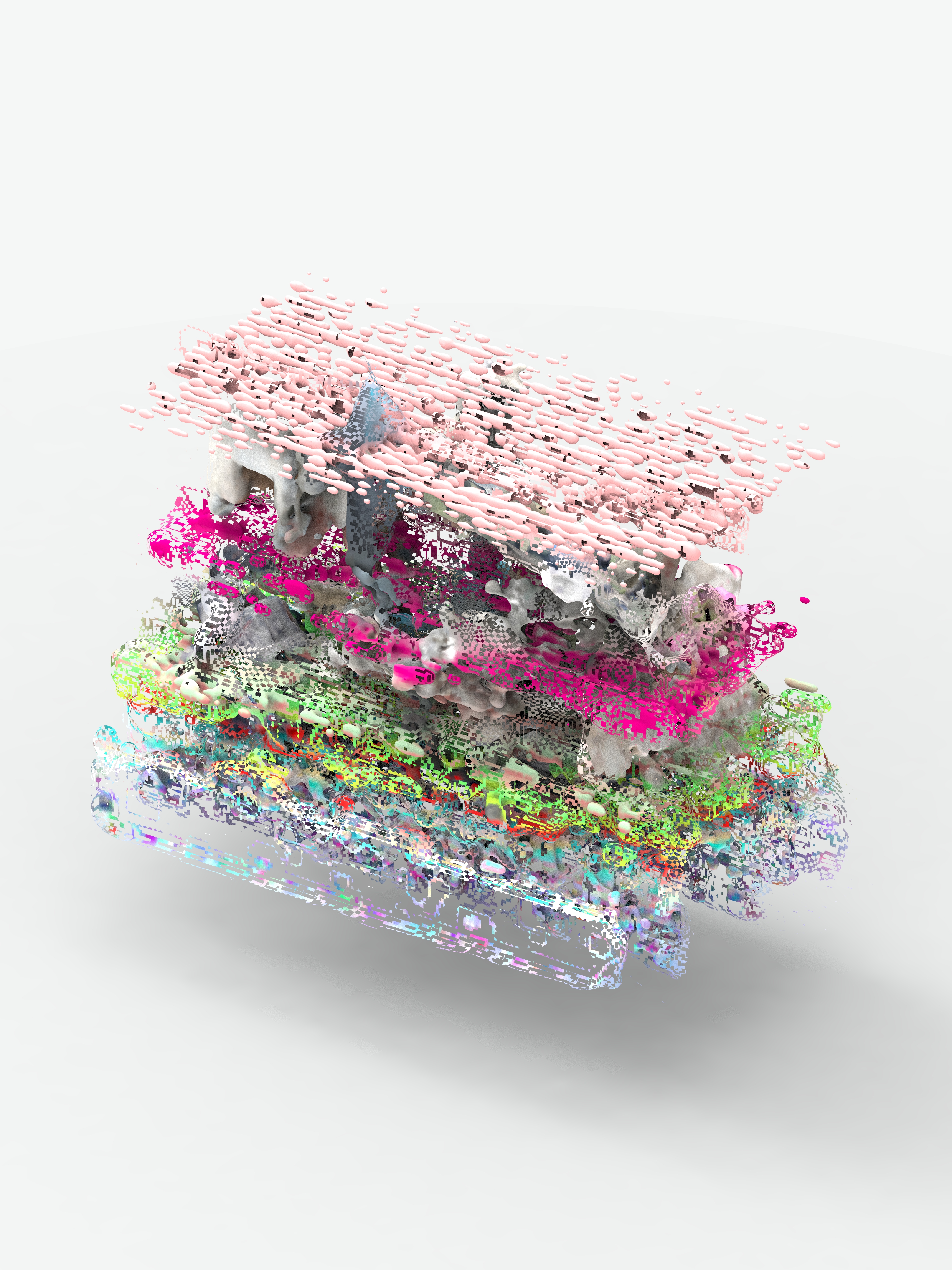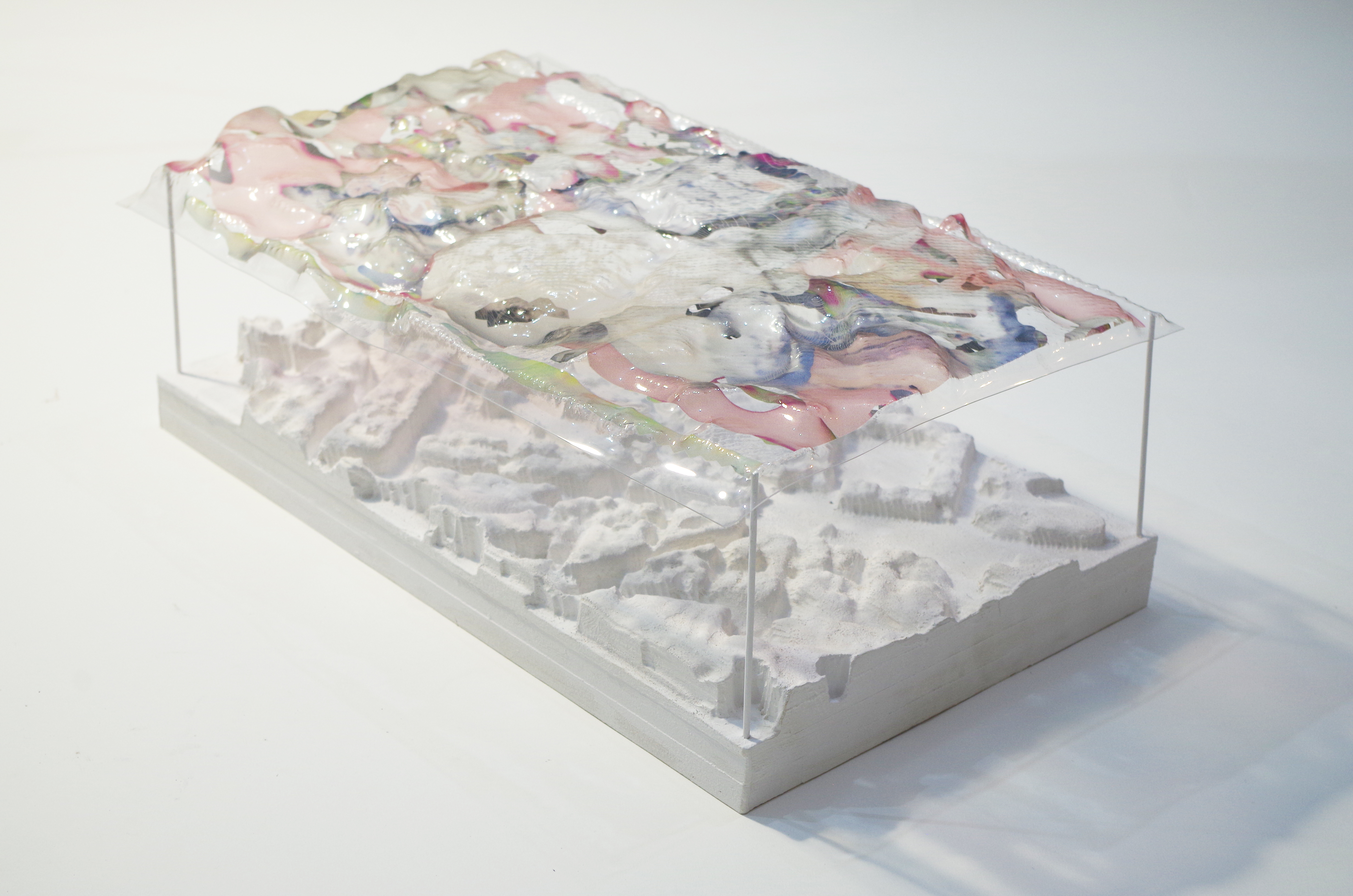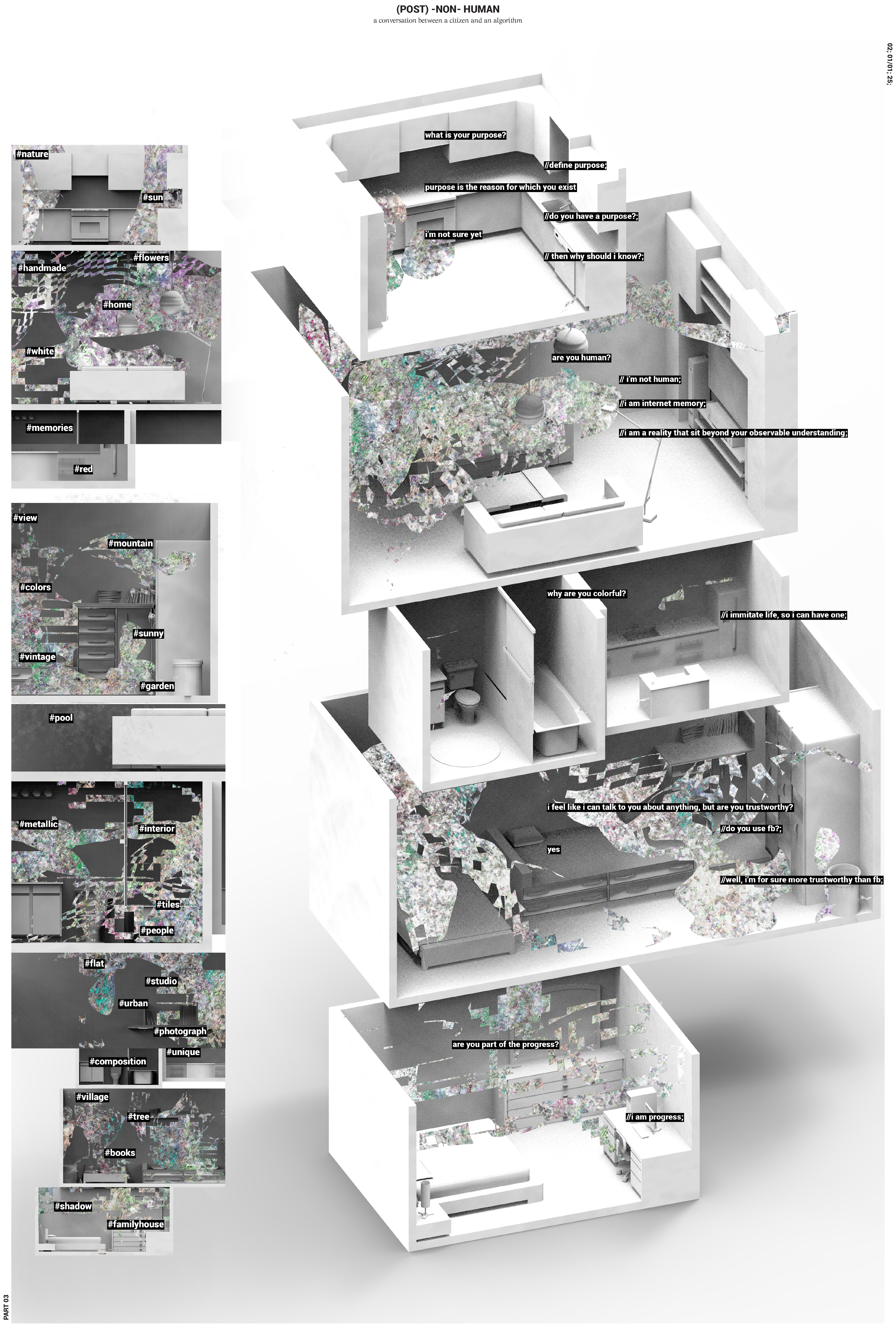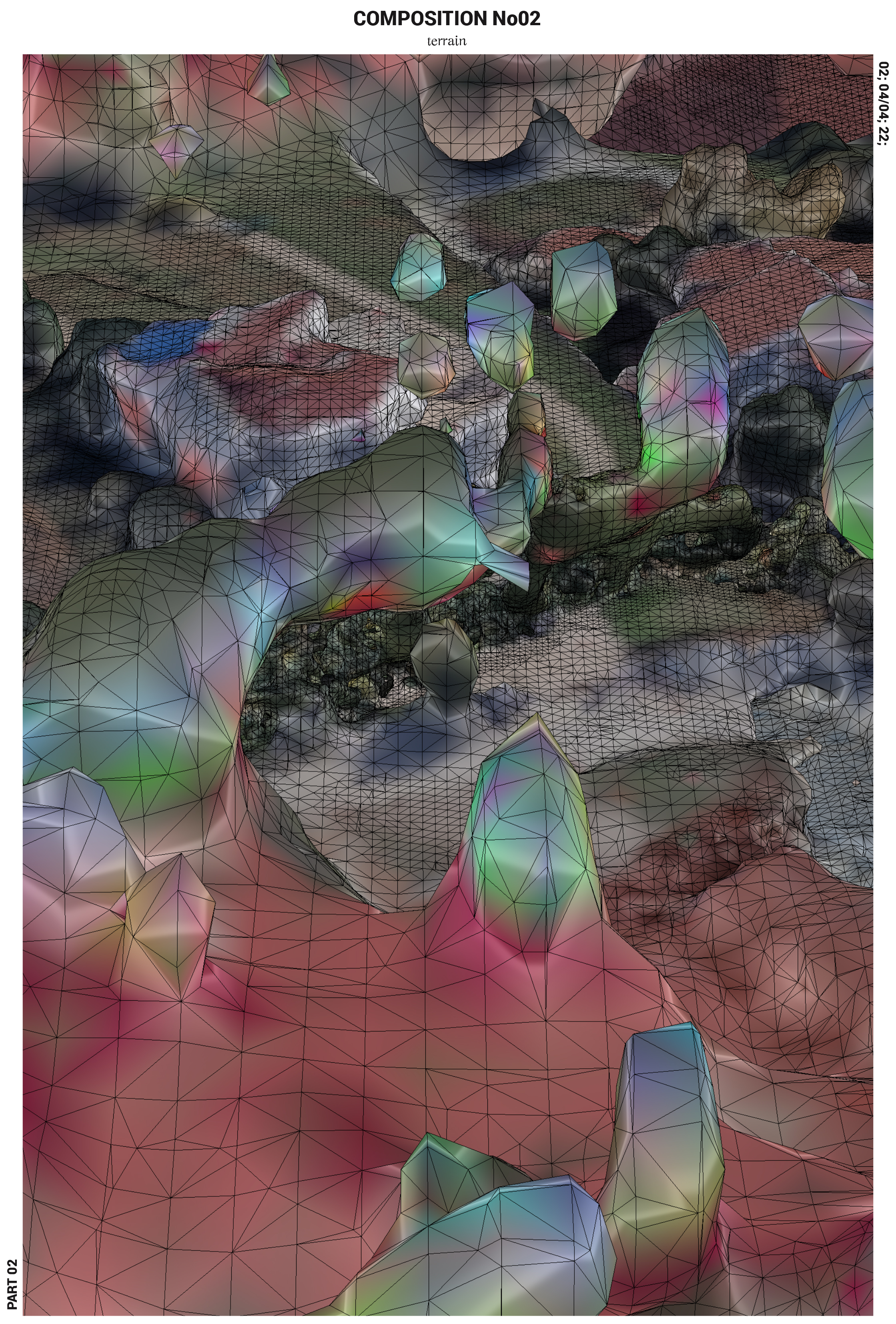DATA POETICS


MArch, Aristotle University of Thessaloniki
School of Architecture
Thesis project
June 2018
Supervisors: Anastasios Tellios, Stavros Vergopoulos
In an ever-changing society of over exposure and extreme connectivity, data from human activity provide a new meaning of input into creative processes. ‘Data poetics’ explores the idea of organising information, creating new associations between different kinds of urban fragments. A focus on the outside, the urban geometry that practically defines the city scape is studied here. An elliptic character is evident due to the image-based reading and documenting of urban space, the flexible use of resolution and mapping manipulations. The result is an oblique application on the urban results of the legislative mechanism implemented to achieve dwelling building on such a scale, that is through a private, small-scale building enterprise. This is resulting by the practically complete absence of state housing initiatives in the 50s, 60s and 70s in greek cities, exactly the opposite to european practices, both western and eastern, combined with the underlying urban palimpsest, which is centuries old. The research reveals episodes in the city, hidden within everyday life events. This becomes the base of abstract design scenarios for the future, addressing contemporary issues of networking and collective action, that invigorate the city in an almost arbitrary, not designed way.
Drawings presented are not composed of lines, but of points. These are points of architectural and urban space that have been documented through 3D scanning and image reconstruction procedures. This huge set of point clouds is disclosing unseen parts of interior and exterior space, which is part of the research agenda. These parts are titled as fragments, tools that are “connected” to the internet. Through the logic of tags or hashtags, data that relate to the fragments are extracted from Instagram and they are reconnecting to the fragments based on their primitive file format - x, y, z, r, g, b - text file.
Literal and metaphorical transcriptions start to emerge, while at the same time visualisations become structures, spaces, experiences. The new reality of the simulacrum contains a map as an interactive representation.
![]()
School of Architecture
Thesis project
June 2018
Supervisors: Anastasios Tellios, Stavros Vergopoulos
In an ever-changing society of over exposure and extreme connectivity, data from human activity provide a new meaning of input into creative processes. ‘Data poetics’ explores the idea of organising information, creating new associations between different kinds of urban fragments. A focus on the outside, the urban geometry that practically defines the city scape is studied here. An elliptic character is evident due to the image-based reading and documenting of urban space, the flexible use of resolution and mapping manipulations. The result is an oblique application on the urban results of the legislative mechanism implemented to achieve dwelling building on such a scale, that is through a private, small-scale building enterprise. This is resulting by the practically complete absence of state housing initiatives in the 50s, 60s and 70s in greek cities, exactly the opposite to european practices, both western and eastern, combined with the underlying urban palimpsest, which is centuries old. The research reveals episodes in the city, hidden within everyday life events. This becomes the base of abstract design scenarios for the future, addressing contemporary issues of networking and collective action, that invigorate the city in an almost arbitrary, not designed way.
Drawings presented are not composed of lines, but of points. These are points of architectural and urban space that have been documented through 3D scanning and image reconstruction procedures. This huge set of point clouds is disclosing unseen parts of interior and exterior space, which is part of the research agenda. These parts are titled as fragments, tools that are “connected” to the internet. Through the logic of tags or hashtags, data that relate to the fragments are extracted from Instagram and they are reconnecting to the fragments based on their primitive file format - x, y, z, r, g, b - text file.
Literal and metaphorical transcriptions start to emerge, while at the same time visualisations become structures, spaces, experiences. The new reality of the simulacrum contains a map as an interactive representation.



